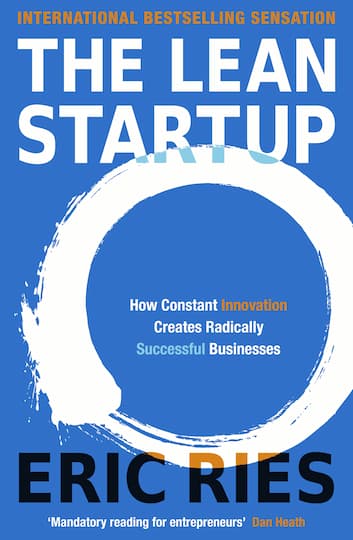Introduction
In The Lean Startup, Eric Ries presents a groundbreaking approach to entrepreneurship. The book shifts the focus from traditional business strategies to a more adaptive, innovative, and efficient method. Ries argues that startups should be treated as experiments, where learning quickly and adjusting accordingly is crucial. The goal is to create a product that meets customer needs while minimizing wasted time and resources.
The Lean Startup Methodology
At the core of Ries’ philosophy is the concept of building a company that can innovate rapidly and pivot when necessary. He introduces the Lean Startup methodology, which consists of three main principles: Build-Measure-Learn, Validated Learning, and Continuous Innovation.
- Build-Measure-Learn: This cycle is the backbone of The Lean Startup. Entrepreneurs start by building a Minimum Viable Product (MVP), the simplest version of their idea that can be tested. Next, they measure how the product performs in the real world by gathering feedback from customers. Finally, they use what they’ve learned to improve the product or pivot in a new direction.
- Validated Learning: Ries emphasizes that startups exist not to build products but to learn what customers truly want. By constantly testing assumptions and gathering data, startups can validate their ideas with real evidence, rather than relying on gut feelings or predictions.
- Continuous Innovation: The Lean Startup approach promotes a culture of constant innovation. Ries advises entrepreneurs to focus on smaller, incremental changes that can be tested and improved upon, rather than developing a final product that might fail in the market.
The Importance of Pivoting
A key concept in The Lean Startup is the ability to pivot. Ries explains that many startups fail because they cling to their original ideas, even when they aren’t working. The Lean Startup method encourages founders to pivot—change direction—based on what they learn from customers. Pivoting doesn’t mean starting over; it’s about shifting focus in response to feedback to achieve better results.
For example, if a product feature doesn’t resonate with users, entrepreneurs should be flexible enough to make changes or remove it altogether. Ries provides several case studies where companies pivoted early on and found success by responding to market needs.
Measuring Progress with Innovation Accounting
One of the biggest challenges in startups is measuring progress, especially when working on a new product in an uncertain market. Ries introduces the concept of Innovation Accounting, a method for tracking progress through learning metrics rather than traditional financial ones.
Instead of focusing solely on revenue, Innovation Accounting tracks key performance indicators that show whether the startup is learning what it needs to know. This could be customer acquisition rates, engagement levels, or other metrics that indicate whether the startup is moving toward product-market fit. By using Innovation Accounting, entrepreneurs can make data-driven decisions and avoid wasting time on unproductive efforts.
The Lean Startup in Action
Throughout the book, Ries shares real-world examples of companies that have applied the Lean Startup method successfully. From tech giants like Dropbox and IMVU to smaller startups, Ries demonstrates how focusing on rapid learning and continuous innovation can lead to success in any industry.
By applying the Lean principles, startups can mitigate risks and create products that solve real problems for their users. This approach is especially useful in industries where uncertainty and rapid change are common, such as technology, healthcare, and consumer goods.
Conclusion
The Lean Startup by Eric Ries is an essential guide for entrepreneurs looking to build successful businesses in today’s fast-paced, unpredictable markets. By focusing on continuous learning, flexibility, and data-driven decisions, the Lean Startup method helps founders create products that truly meet customer needs. The book’s practical insights and proven strategies make it a must-read for anyone involved in startups or innovation.
Back to Top 10 Tech Books.
The Lean Startup by Eric Ries on Internet Archive free.






